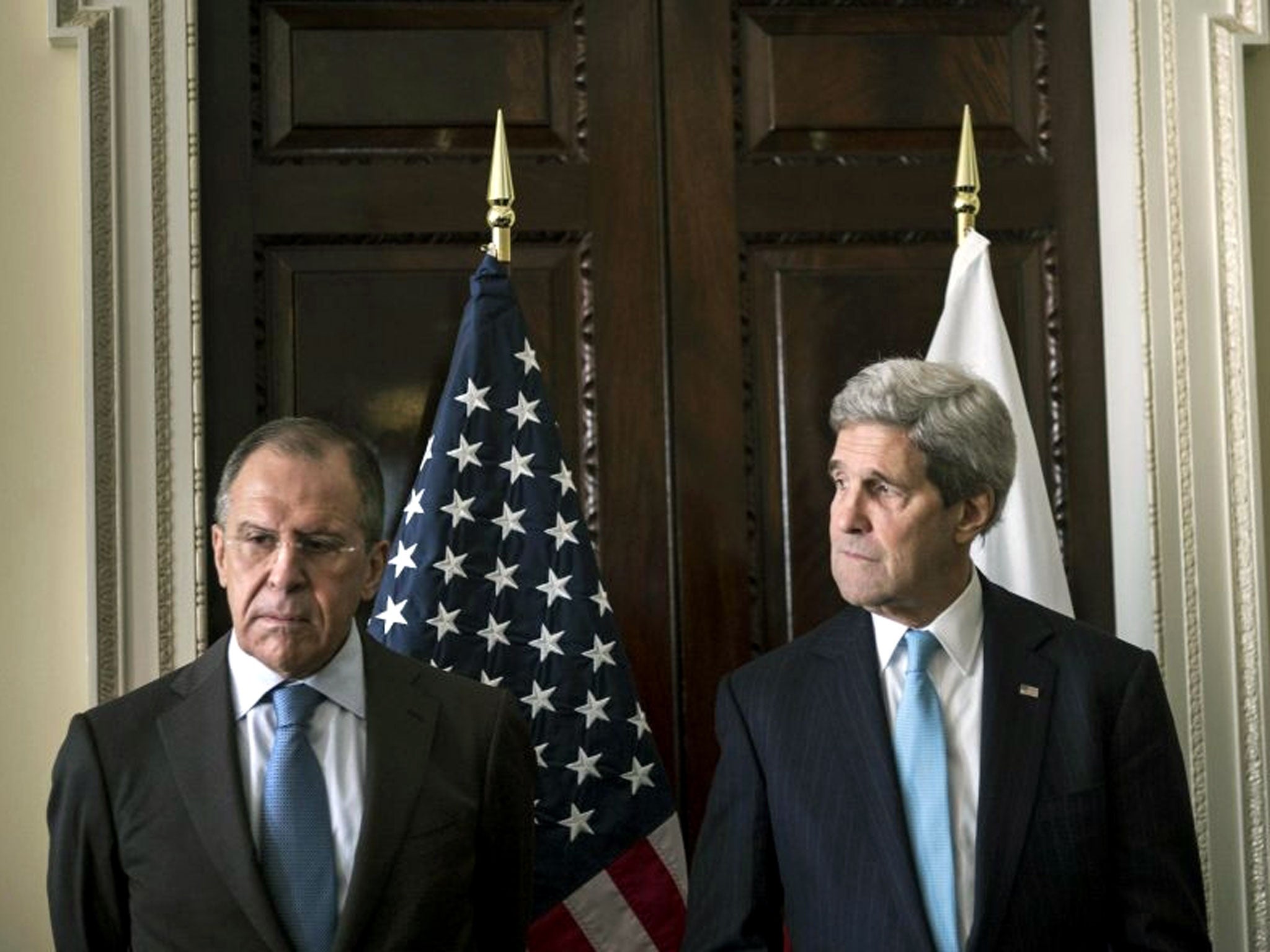Ukraine latest: US Secretary of State and Russian Foreign Minister fail to end crisis after talks in London run hours over schedule
The meeting comes ahead of a pivotal referendum in Crimea on Sunday

A last-ditch attempt to end the growing diplomatic crisis surrounding Ukraine by the US Secretary of State and Russian Foreign Minister failed on Friday, after talks between the men ran hours over schedule but reached no positive conclusion.
The meeting, set in the official residence of the US ambassador in central London, comes two days before the pivotal 16 March referendum where Crimeans will decide whether the region should be claimed by Moscow, or remain in Ukraine, following Russia’s military seizure of Crimea earlier this month.
After the negotiations, Secretary of State John Kerry maintained the Western view that the referendum is illegitimate because of the presence of thousands of Russian troops on the Crimean streets combined with the lack of a significant campaign period.
"After much discussion the Foreign Minister made clear that President [Vladimir] Putin is not prepared to make any decision regarding Ukraine until after the referendum on Sunday," adding that if the Russian Parliament ratified the referendum vote it would amount to a "back-door annexation" of the territory.
"Neither we nor the international community will recognise the results of this referendum," Mr Kerry said, adding there were "consequences for the choices" Russia makes.
Nevertheless, Foreign Minister Sergei Lavrov concluded the intense day of talks by re-asserting that Moscow will “respect” the result of the poll that is likely to be in its favour, and called the disputed region a “special case”.
In pictures: Ukraine crisis
Show all 12Despite Western powers scrambling for weeks to resolve the crisis with diplomacy, Mr Lavrov said that he and Secretary of State John Kerry were unable to find a “common vision“ on the situation — but described the dialogue as ”useful.“
Mr Lavrov also rejected calls from Western powers to create an international contact group to resolve the crisis in Ukraine, citing “the crisis was not caused by Russia” and that “the relationship [between Russian and Ukraine] had never been ceased”.
When asked to comment on clashes in the city of Donetsk, which erupted when protesters chanting pro-Russian slogans broke through a police cordon to a demonstration being staged by anti-Russian groups, Mr Lavrov insisted that Moscow had no plans of military intrusion into eastern Ukraine.
He also re-iterated that Russia regarded the ousting of former Ukrainian President Viktor Yanukovych as the overthrow of a legally elected President.
Following meetings with both men earlier this morning, UK Foreign Secretary William Hague said he believed they were "seriously committed" to trying to make progress - but warned that it would be "formidably difficult".
He also offered a reminder that the EU and US would be imposing sanctions as early as next week if tensions are not eased, plans that Mr Lavrov dismissed "counter-productive."
"This is a referendum which doesn't meet any international norm or standards, it's taking place without a campaign, without an electoral roll, without the political leaders of the country being able to visit, in the presence of many thousands of troops from a foreign country," Mr Hague said.
Meanwhile in Washington, US President Barack Obama said he still hopes for a diplomatic solution to the Ukraine crisis, but stressed that Russia will face consequences if it does not loosen its grip on the Crimean peninsula.
In Kiev, Arseny Yatseniuk who became Ukraine's interim Prime Minister after former President Viktor Yanukovych was ousted, said on Friday he was heartened by "unprecedented support" he had received during a visit to the US and denounced Russia for rejecting proposals to resolve the crisis over Crimea.
"Unfortunately, Russia refuses to consider any plans," he said.
"All they believe in is bringing up tanks and troops, weaponry and soldiers to the Ukrainian-Russian border and strengthening their military presence in Crimea."
Asked about the prospect of US and other international aid for the Ukrainian armed forces, he said: “Ukraine, like the whole world, is only considering how to resolve this crisis by peaceful means.
"The civilised world is taking every measure possible to give technical help to the Ukrainian armed forces.
"But it must be clearly understood that this now is the responsibility exclusively of the Ukrainian army and Ukrainian state," he added.
His comments came after the US Pentagon said 25,000 prepackaged military meals were on their way to Ukraine, but had not yet been delivered.
Subscribe to Independent Premium to bookmark this article
Want to bookmark your favourite articles and stories to read or reference later? Start your Independent Premium subscription today.

Join our commenting forum
Join thought-provoking conversations, follow other Independent readers and see their replies